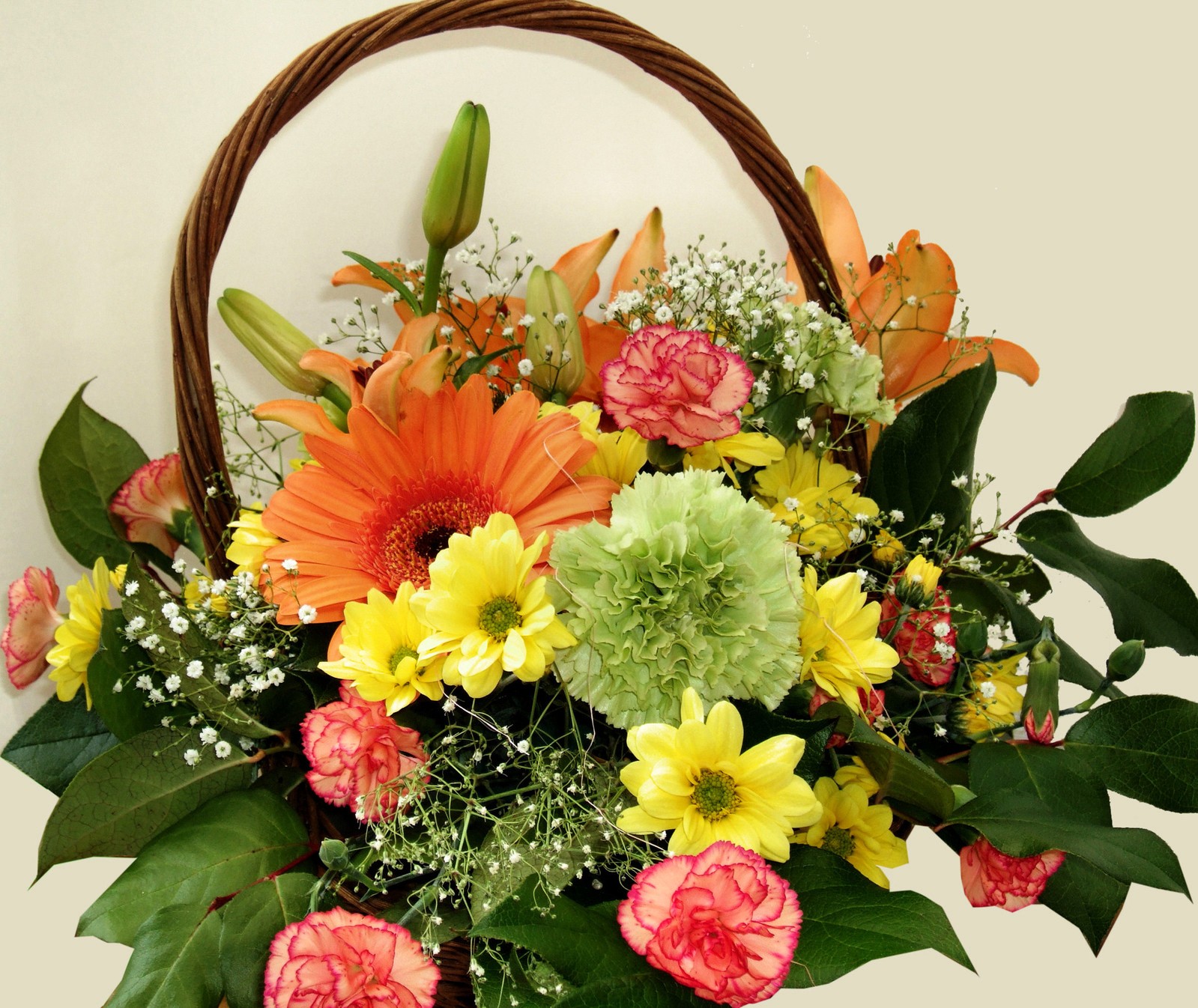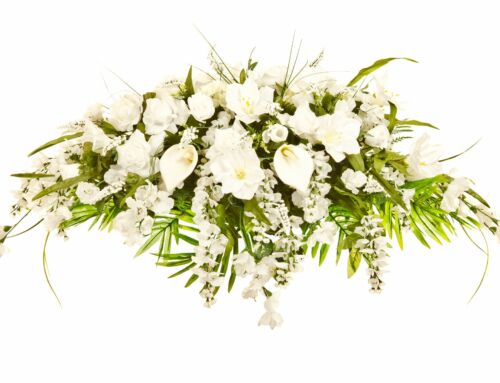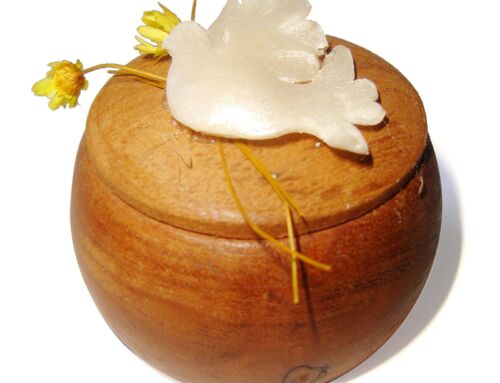Flowers have traditionally been used to express respect for the deceased and sympathy for the bereaved.
They are a visual expression of love, respect and sympathy, and a way of sharing the burden of grief.
Funeral flowers: These serve as a tribute to the deceased. They can either be sent to the funeral home prior to the service, or to the venue where the funeral service will be held. It is also acceptable to personally bring flowers with you to the funeral service. They are usually not addressed to a particular loved one of the deceased, as the gesture is meant to pay respect to the deceased themselves. The flowers for the coffin are reserved for the closest family members. Funeral flowers should never be sent to a home or office as this can be distressing to grieving people.
Sympathy flowers: These can be addressed and sent directly to a loved one of the deceased (family member, friend, acquaintance or business associate). It is also acceptable to personally bring these flowers with you to the funeral service to give to the person concerned.
Sympathy flowers are usually smaller arrangements or bunches of flowers. Plants are also a good choice as they provide a lasting reminder of your thoughtfulness and serve as a keepsake in memory of the recipient’s loved one.
Sympathy flowers can be sent after the funeral service, as people can grieve for a long time after the death of a loved one. No matter when you hear the sad news, sending flowers, a pot plant or a food basket is always appropriate, and they will appreciate your thoughtfulness.
Sympathy Cards: Cards to be included with flowers are usually pre-printed with messages like, “My Deepest Sympathy” or “With love and sympathy.” All you need to do is sign your name, or give this information over the phone to the florist. You should use your first and last name to avoid confusion for the family. If you would prefer to write your own message, please view our suggestions for writing sympathy card messages, at the end of this section.
Interstate, overseas and out of town funeral services: These will require you to order flowers either from an on-line or a local florist. On-line services select from their network of florists, and allow you to view and choose from a variety of funeral floral arrangements from the comfort of your own home. If you prefer to contact a local florist, the simplest way is to contact the funeral home for guidance. They will provide you with the contact details of their preferred florist, or they may offer to order the flowers on your behalf and will take your order details and payment.
Different religions and customs: Although flowers are freely accepted by many religions and cultures at funerals, it is worth remembering that there are some which do not traditionally receive flowers. If you are unsure, seek guidance from the funeral home to ensure you respect the religious guidelines or customs of the deceased and/or the bereaved.
For further information, please visit: Teleflora
If you require a Funeral Florist, please use our Business Directory Search facility.





